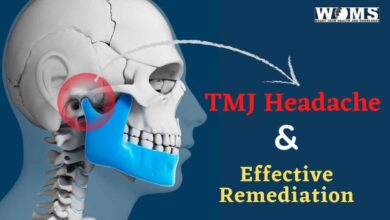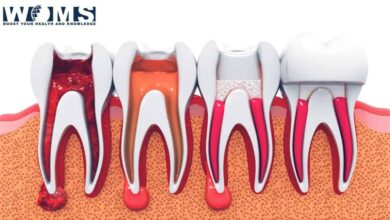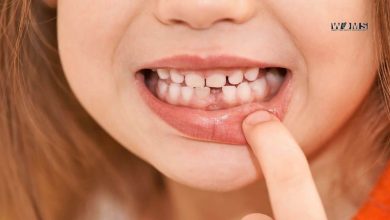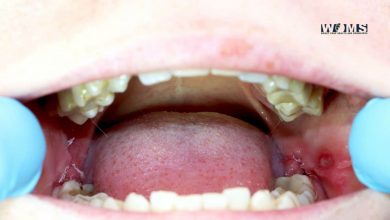What Happens When You Don’t Brush Your Teeth?
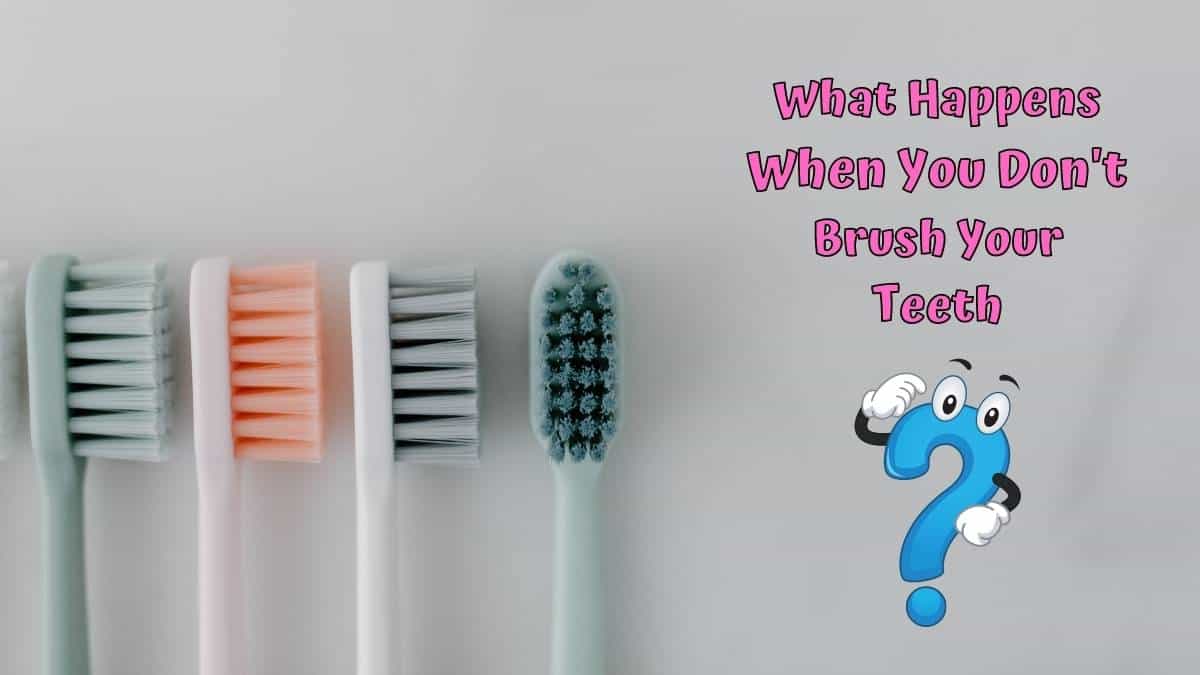
Teeth are the most ignored part of the human body. Most people don’t bother about oral hygiene. They don’t even visit the dentist unless they have severe pain in their teeth. Most people don’t know about the proper technique of tooth brushing. In addition, people are unaware of what happens when you don’t brush your teeth.
There is a special need to brush your teeth twice daily. Your mouth is a gateway to several problems and infections. If you don’t brush your teeth regularly, you may be at risk of various dental problems. In addition, it is important to maintain oral hygiene for better esthetics.
What happens when you don’t brush your teeth?
Most people think that skipping a toothbrush will not affect their teeth. The American Dental Association recommends brushing teeth regularly. In the short term, it will not affect the teeth as much. But it will cause severe health problems if ignored in the long term.
When you don’t brush your teeth, a layer of yellowish biofilm accumulates over the surfaces of your teeth. If you don’t brush continuously, this biofilm hardens after 24 hours. This biofilm converts into plaque
Bacteria start accumulating over this hardened plaque. Moreover, the plaque converts into hard calculus. This hard calculus is not easy to remove with only brushing.
Possible outcomes when you don’t brush your teeth:
There may be several oral problems when you don’t brush your teeth regularly. These problems may vary from a simple tooth cavity to several damaging diseases.
In addition, poor oral hygiene also affects various other organs of the mouth. Let us have a look at a detailed clinical picture when you don’t brush your teeth.
Tooth cavities:
Plaque starts accumulating on teeth when you don’t brush your teeth. Bacteria further deposit on the plaque. These bacteria can damage the protective covering of enamel. In addition, these bacteria keep on destroying the lower surfaces. This process, in turn, leads towards tooth cavities.
If left untreated, these cavities may cause dental infection. Moreover, these cavities are the reason for tooth decay or loss. These cavities are preventable with the help of brushing teeth. Brushing stops this process and improves oral health.
Gum diseases:
Plaque deposits can cause gum inflammation known as gingivitis. In addition, plaque can weaken the gum attachment with teeth. In this way, bacteria can penetrate deep into the gums. These bacteria can cause gum inflammation. Moreover, gums become swollen and easy to bleed.
Periodontitis:
If gingivitis is left untreated, it may cause periodontitis. Periodontitis is an infection of tooth-supporting structures. In addition, it may invade alveolar bone leading to destruction. Moreover, it is a major cause of tooth loss because of support lack. You can prevent this loss only by proper brushing.
Pregnancy problems:
There is a special need to care for your teeth during pregnancy. 60-70% of women suffer from gingivitis during pregnancy. Therefore, it is important to look after their teeth during this period.
Diabetic patients:
People with diabetes are at increased risk to develop periodontitis. Patients with diabetes must take care of their teeth. Otherwise, there is a strong chance to develop periodontitis and ultimately tooth loss.
Heart diseases:
Brushing can also prevent heart diseases. There are several bacteria in the mouth that can cause heart diseases. These bacteria can transport from mouth to heart. A study reports that people who brush their teeth were less likely to develop heart diseases.
Complications according to time when you don’t brush your teeth:
Brushing regularly is the main key to preventing oral diseases. There are several studies that explain the brushing benefits and complications according to time. It is straightforward to guess what happens when you don’t brush your teeth. This main heading divides the complications according to the time.
One to three days:
Dental plaque after 48 hours starts the demineralization process of dentin. Dentin is the protection barrier beneath the enamel surface. When you don’t brush for 1-3 days, dental plaque keeps on accumulating and damaging the tooth structure.
One week:
If you don’t brush for a week, your mouth develops bad breath due to plaque. Sticky food also starts accumulating over the plaque. In addition, bacteria deposits on the plaque. In this way, your teeth start weakening due to the plaque effect.
One month:
If you don’t bother to brush for a month, plaque converts into hard calculus. This hard calculus may cause gum diseases. In addition, this calculus may also lead to a severe tooth dependent on your immune system. You may suffer from various gum diseases and tooth structure loss. One-year plaque buildup may lead to tooth mobility and loss.
How to maintain oral hygiene to prevent dental diseases?
Some people even don’t know how to maintain oral hygiene. There are some guidance rules from the American Dental Association for the proper care of your teeth. You might want to look out for nutritious food for healthy teeth and gums.
Brush your teeth at least twice daily with fluoride-containing toothpaste. Fluoride protects the teeth from cavities. In addition, brushing is enough to remove plaque from the surfaces of teeth.
Floss your teeth once daily. In addition, you can also use water flossing or dental picks. This will help to clean your teeth interdentally.
Fluoridated drinks can prevent tooth decay due to any reason. Many cities provide fluoride-containing water to improve dental health. In addition, fluoride can also strengthen the teeth.
Say no to tobacco. Smoking or tobacco products can increase tooth decay and gum diseases.
A healthy diet can prevent tooth diseases. Fresh fruits and vegetables can lower the risk of tooth loss. In addition, limit high sugar foods to improve oral health.
Visit your dentist almost every 6 months. Your dentist may diagnose different oral diseases if you are a caries-prone person.
Also Read: Can Wisdom Teeth Grow Back?
Conclusion:
People who don’t brush their teeth are most likely to induce several dental diseases. They are at greater risk to develop cavities, gums, and other oral diseases. In addition, if you don’t care about your oral hygiene, you may also get other systemic diseases. You want to look
Brushing regularly is the main part of the daily healthcare routine. Brush your teeth twice daily and floss for once. Maintain a healthy routine for a better lifestyle. We hope this article has helped you know about what happens when you don’t brush your teeth.
Frequently asked questions (FAQs):
Why is brushing important?
It is important to brush your teeth and floss to prevent oral diseases. If you don’t brush your teeth, you may develop cavities and gum diseases. Brushing helps to remove plaque and bacteria from tooth surfaces.
How to brush properly?
Brush your teeth properly to clean all surfaces of teeth. Floss your teeth to remove interdental plaque.
Is it important to use fluoridated toothpaste?
Fluoride toothpaste helps to protect teeth from cavities. In addition, it also remineralizes the teeth. Moreover, fluoride toothpaste strengthens the enamel. Therefore, it is best to use for teeth. But excess is always toxic for teeth.
Can poor oral health cause oral cancer?
There is a strong link between severe periodontitis and HPV, a cancer-inducing virus. Bad oral hygiene with smoking is the major cause of developing oral cancer. Several studies suggest that periodontitis may increase the growth of cells. This increase in cells may cause oral cancer.
